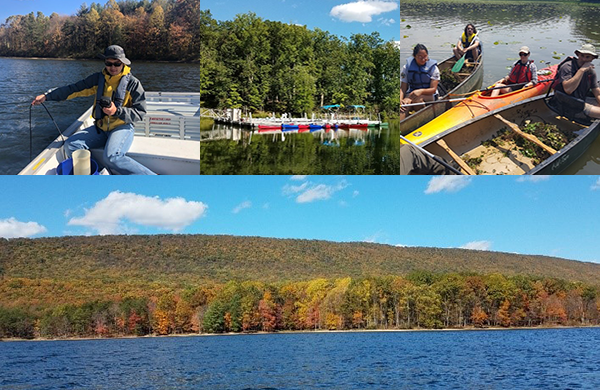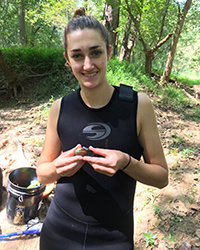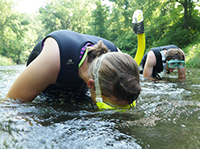Below are Soil Science and Resource Assessment – Soil and Plant Science Division -- Direct Hire positions, 47 in all. All of these are GS-5/7/9 Series 0470 (Soil Scientist) positions only, not ecologists at this time. Open from December 31st, 2020 – July 15th, 2021.
Some require only a BS degree in soils or a related field.
For Direct-Hire Authority, veterans' preference and traditional rating and ranking of applicants do not apply to positions filled under the announcements. THIS IS AN OPEN CONTINUOUS ANNOUNCEMENT - Periodic lists of candidates are supplied to the hiring managers to make selections from during the announcement open period until positions are either filled or announcement expires. The first certificate for these vacancies is scheduled to go to hiring managers on January 14th, 2021.
Below are links to each of SSRA-SPSD announcements that have Direct-Hire Authority. Locations within the Southeast Region have been highlighted. All of these listed below are MLRA Office, field based, entry level positions, managed under the respective SPSD Regions. Please note that candidates should have a degree with qualifying course work for series 0470 or will have a degree with qualifying course work for series 0470 conferred within 180 days of the closing date of this announcement to be considered.
Soil Scientist. Direct Hire vacancies for SSRA: https://www.usajobs.gov/GetJob/ViewDetails/588227300
Locations (3 - Vacancies): Fairbanks, AK; Homer, AK; Wasilla, AK
Soil Scientist. Direct Hire vacancies for SSRA: https://www.usajobs.gov/GetJob/ViewDetails/588228000
Locations (3 - Vacancies): Ogden, UT; Price, UT; Pasco, WA
Soil Scientist. Direct Hire vacancies for SSRA: https://www.usajobs.gov/GetJob/ViewDetails/588159300
Locations (4 - Vacancies): Victorville, CA; Lincoln, NE
Soil Scientist. Direct Hire vacancies for SSRA: https://www.usajobs.gov/GetJob/ViewDetails/588228800
Locations (16 - Vacancies): Atlantic, IA; Waverly, IA; Hays, KS; Salina, KS; Bemidji, MN; Union, MO; Bismarck, ND; Fargo, ND; Lincoln, NE; Stanton, NE; Altus, OK; Woodward, OK; Bryan, TX; Lubbock, TX; Nacogdoches, TX; Robstown, TX
Soil Scientist. Direct Hire vacancies for SSRA: https://www.usajobs.gov/GetJob/ViewDetails/588112200
Locations (1 - Vacancy): Hutchinson, KS
Soil Scientist. Direct Hire vacancies for SSRA: https://www.usajobs.gov/GetJob/ViewDetails/588226300
Locations (2 - Vacancies): Flint, MI; Portage, MI
Soil Scientist. Direct Hire vacancies for SSRA: https://www.usajobs.gov/GetJob/ViewDetails/588229400
Locations (6 - Vacancies): Frederick, MD; Grand Rapids, MI; Hammonton, NJ; Findlay, OH; Marietta, OH; Morgantown, WV
Soil Scientist. Direct Hire vacancies for SSRA: https://www.usajobs.gov/GetJob/ViewDetails/588229500
Locations (11 - Vacancies): Loxley, AL; Normal, AL; Fort Myers, FL; Richmond Hill, GA; Owensboro, KY; Ruston LA; Meridian, MS; Greensboro, NC; Raleigh, NC; Laurens, SC; Richmond, VA
Soil Scientist. Direct Hire vacancies for SSRA: https://www.usajobs.gov/GetJob/ViewDetails/587406800
Locations (1 - Vacancy): Wetumpka, AL



 One member's project would focus on further developing an aspect of the Department's freshwater mussel restoration and conservation initiatives. Contact: Matt Ashton
One member's project would focus on further developing an aspect of the Department's freshwater mussel restoration and conservation initiatives. Contact: Matt Ashton  The Chesapeake Bay Trust anticipates placing around 35-40 Corps Members, young adults 18-25, with nonprofit organizations and government agencies throughout the Chesapeake Bay region for a paid year of service ($19,000) beginning on August 18, 2020. To find the application, go to
The Chesapeake Bay Trust anticipates placing around 35-40 Corps Members, young adults 18-25, with nonprofit organizations and government agencies throughout the Chesapeake Bay region for a paid year of service ($19,000) beginning on August 18, 2020. To find the application, go to